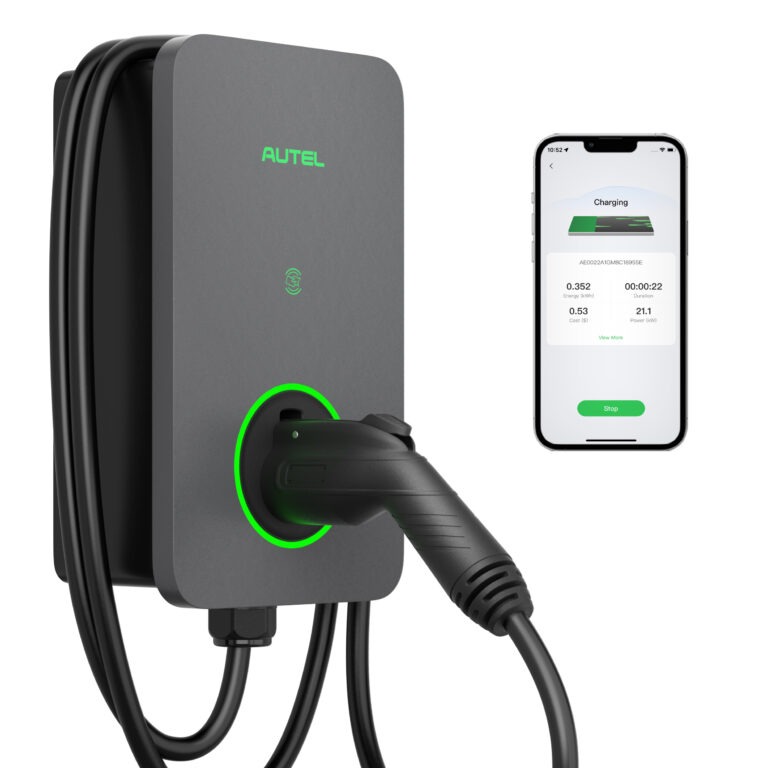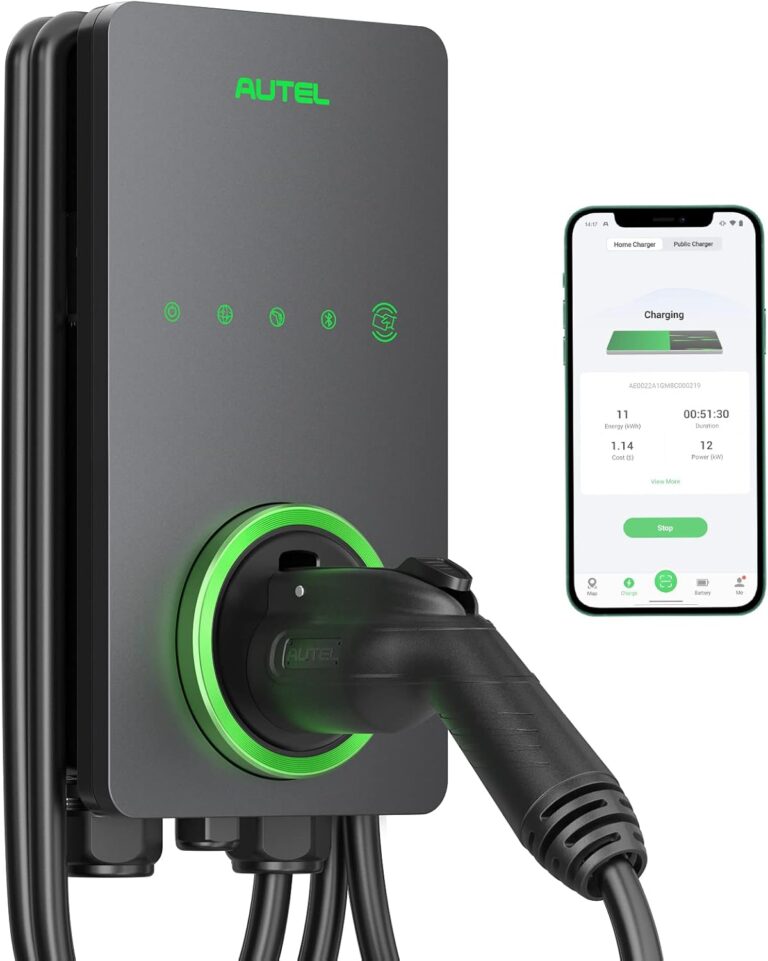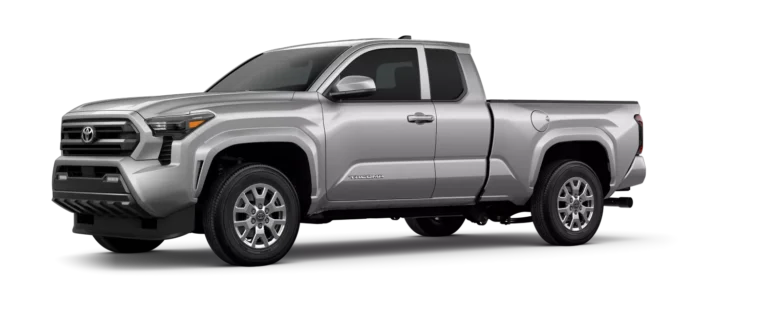
Best EV Charging Cables For Home In 2024!
- Last Updated
- September 24, 2024
Your Ultimate Guide To The Best EV Charging Cables For Home In 2024
If you’re looking for fast charging speeds, durable weatherproofing, or smart features like energy monitoring and scheduling, we’ve got you covered.
Check out our expert guide for top picks, from budget-friendly charging cables to premium options with advanced smart features and higher power capacity, and the pros and cons of each one.
Best Portable EV Charging Cable
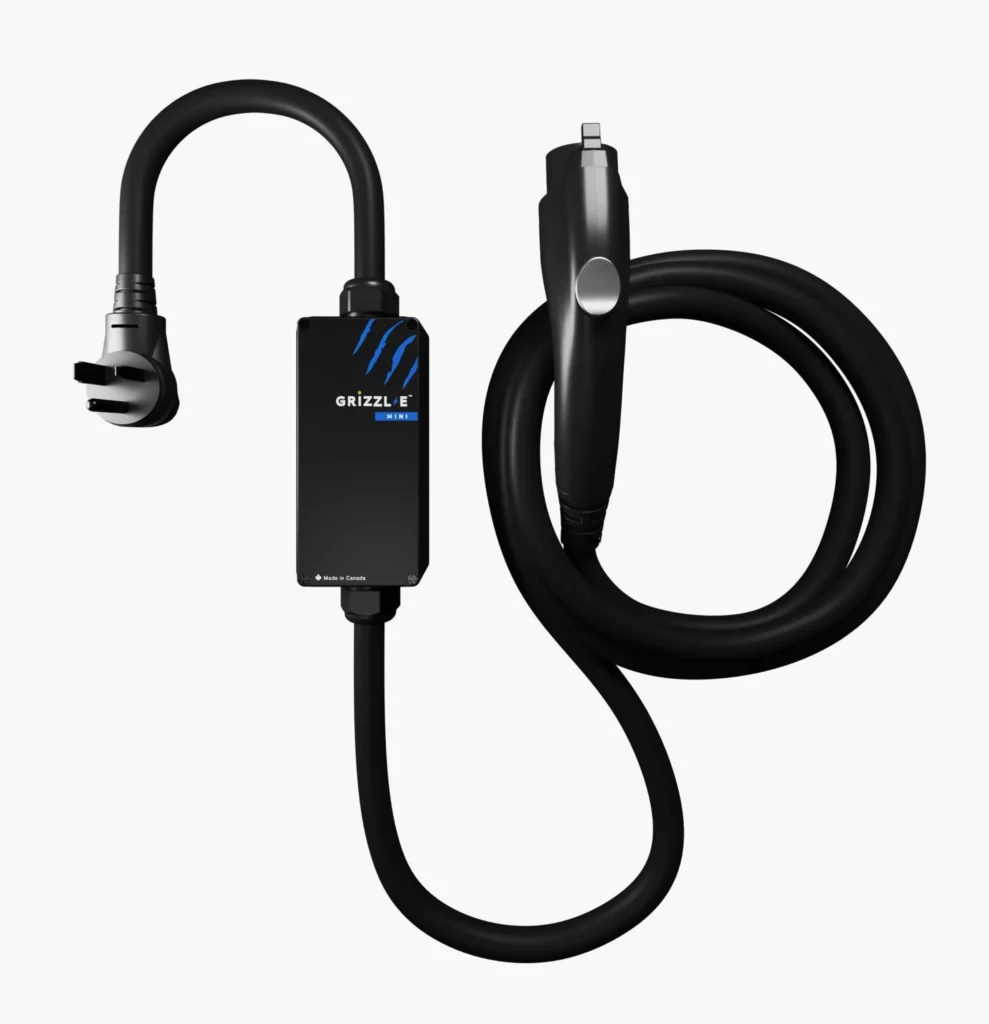
Grizzl-E Mini Portable EV Charging Cable
- Power: Up to 32 amps (7.4 kW)
- Cable Length: 16 feet
- Weatherproof Rating: NEMA 4 (outdoor rated)
- Adjustable Amps: Yes (16, 24, 32, 40)
- Compatibility: J1772
- Warranty: 3 years
- Portable: Yes
The Grizzl-E Mini Portable EV Charging Cable is a compact and efficient charging solution designed for electric vehicle (EV) owners seeking convenience and versatility. With a 40 Amp output, this portable charger can deliver a fast charging experience, making it ideal for home use or while on the go. The robust design and durable materials ensure reliability, while its lightweight and compact form factor make it easy to transport and store.
Featuring a NEMA 14-50 plug, the Grizzl-E Mini is compatible with a wide range of electric vehicles, providing flexibility for different models and brands. The charger comes with adjustable power settings, allowing users to select the charging speed that best suits their needs. Additionally, its weatherproof design makes it suitable for outdoor use, ensuring that you can charge your EV in various conditions.
- You want a portable charging solution that is easy to take with you on trips or commutes.
- You need a high-powered charger that can deliver up to 40 Amps, allowing for faster charging times.
- You prefer a charger with adjustable power settings for flexible charging options.
- You value a durable and weatherproof design that can withstand outdoor conditions.
- Heavy-duty, all-weather casing with IP67 rating for dust and water resistance.
- High-quality aluminum body for added durability.
- Rated for extreme temperatures, from -22°F to 122°F (-30°C to 50°C).
- Very rugged and suitable for outdoor installations.
- Portable design with weather-resistant build.
- Bulkier than some other portable options.
- Limited smart features.
best smart EV charging cable

JuiceBox 40 Smart EV Charging Cable
- Power: Up to 40 amps (10 kW)
- Cable Length: 25 feet
- Weatherproof Rating: NEMA 4X (Indoor and outdoor)
- Adjustable Amps: Yes (up to 40 amps)
- Compatibility: J1772
- Warranty: 3 years
- Portable: No
The JuiceBox 40 Smart EV Charging Cable is an advanced charging solution designed for electric vehicle (EV) owners who demand speed, flexibility, and smart technology. With its 40 Amp output, this charger can deliver rapid charging, significantly reducing the time it takes to replenish your EV’s battery. Its sleek, compact design makes it suitable for both home installation and portable use.
One of the standout features of the JuiceBox 40 is its smart connectivity. This charger can be easily integrated with Wi-Fi, allowing you to monitor charging status, adjust settings, and schedule charging sessions through a user-friendly smartphone app. The app also provides insights into energy usage, enabling you to optimize your charging habits for cost efficiency.
- You want a high-powered charger that provides up to 40 Amps for faster charging times.
- You appreciate smart features like Wi-Fi connectivity for remote monitoring and control via a mobile app.
- You want to track your energy usage and charging history for better efficiency and budgeting.
- You prefer a charger that is compatible with a wide range of electric vehicles, making it versatile for multiple users or future upgrades.
- Indoor/outdoor use with NEMA 4X-rated enclosure for dust and water resistance.
- Sleek, lightweight design with high-quality materials for ease of handling.
- Offers both durability and a compact design.
- Strong app support and smart features.
- Price is higher than other options.
- Shorter cable length than some competitors.
best budget EV charging cable
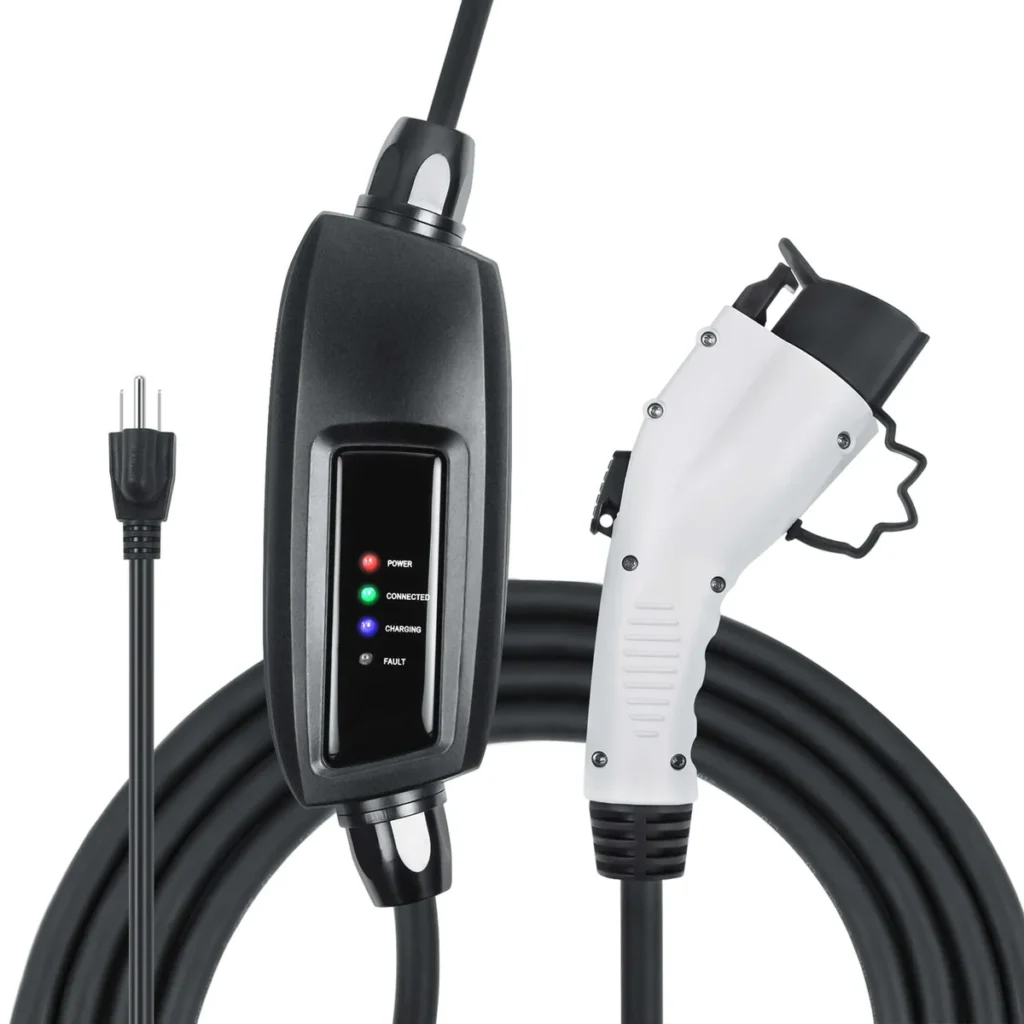
Lectron EV Charging Cable (16 Amp)
- Power: 16 amps (3.5 kW)
- Cable Length: 16 feet
- Weatherproof Rating: IP66 (water-resistant)
- Adjustable Amps: No (Fixed at 16 amps)
- Compatibility: J1772
- Warranty: 1 year
- Portable: Yes
The Lectron EV Charging Cable (16 Amp) is a reliable and budget-friendly option for electric vehicle (EV) owners seeking a straightforward charging solution. With a 16 Amp output, this charging cable is designed for home use, allowing you to charge your EV efficiently and conveniently. Its compact design makes it easy to store and transport, making it ideal for both home and travel use.
This charging cable is equipped with a NEMA 5-15 plug, allowing it to connect to standard household outlets. It’s a great choice for those who need a basic charging solution without the need for extensive installation or complicated setups. The Lectron cable is also compatible with most electric vehicles, ensuring versatility across different brands.
- You want an affordable charging solution that works with standard household outlets.
- You need a lightweight and portable cable for charging your EV at home or on the go.
- You appreciate a no-frills design that’s easy to use without complicated features or installations.
- You own a vehicle that can be charged efficiently with a 16 Amp output and do not require faster charging.
- Weatherproof and impact-resistant casing for light outdoor use.
- Basic, reliable materials but lacks premium weatherproofing features.
- Lightweight and easy to transport.
- Affordable for those seeking basic charging.
- Less durable than premium options.
- Limited to 16 amps, suitable only for lower-power charging.
best EV charger for Tesla vehicles

Tesla Wall Connector
- Power: Up to 48 amps (11.5 kW)
- Cable Length: 18 or 24 feet
- Weatherproof Rating: NEMA 3R (Indoor and Outdoor)
- Adjustable Amps: Yes (up to 48 amps)
- Compatibility: Tesla Vehicles
- Warranty: 4 years
- Portable: No
The Tesla Wall Connector is a powerful and sleek Level 2 EV charger designed specifically for Tesla vehicles, offering up to 48 amps of power for fast and efficient home charging. It connects directly to your home’s electrical system, allowing you to charge your Tesla much faster than with a standard outlet. This charger can be installed indoors or outdoors, making it flexible for different charging setups.
With its Wi-Fi connectivity, the Tesla Wall Connector offers smart features, including monitoring and controlling your charging sessions through the Tesla app. It’s a highly durable charger, built with premium materials, and designed to seamlessly integrate into your home with its minimalist look. For Tesla owners, it’s the ideal charging solution, ensuring compatibility and optimized charging performance.
- You own a Tesla vehicle and want a high-powered home charging solution.
- You need to charge your Tesla faster than standard outlets and want to cut down on charging time.
- You’re looking for a charger with smart features like remote monitoring and control via the Tesla app.
- You want a charger that’s durable and weather-resistant, making it suitable for both indoor and outdoor installation.
- You appreciate a sleek design that complements the aesthetic of your home.
- Solid aluminum and polycarbonate housing for high durability.
- IP44-rated for dust and water resistance, ideal for garage setups.
- Built specifically for Tesla vehicles, offering seamless compatibility.
- Sleek, modern design that blends well with home decor.
- Expensive compared to third-party options.
- Compatibility best for Tesla vehicles only.
best home EV charging cable
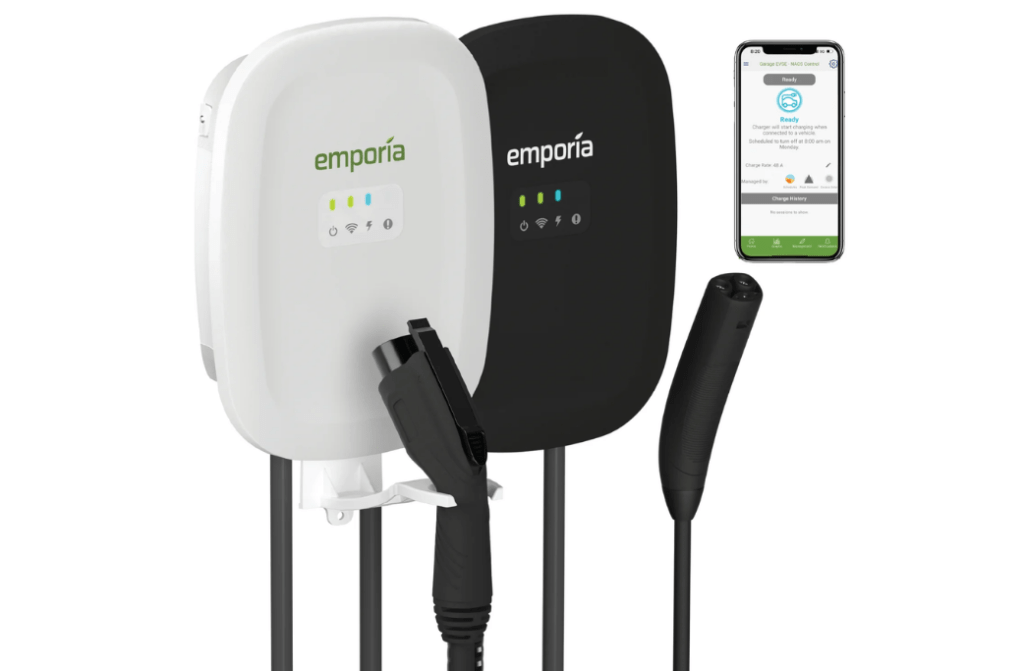
Emporia Smart Home EV Charging Cable
- Power: Up to 48 amps (11.5 kW)
- Cable Length: 24 feet
- Weatherproof Rating: NEMA 4 (Indoor and Outdoor)
- Adjustable Amps: Yes (up to 48 amps)
- Compatibility: J1772
- Warranty: 3 years
- Portable: No
The Emporia Smart Home EV Charging Cable is a Level 2 charger designed to offer a reliable and affordable home charging solution with up to 48 amps of power. Compatible with most electric vehicles, it provides faster charging compared to standard Level 1 chargers and supports a wide range of EV models.
One of its standout features is its smart home integration, allowing users to track and manage their energy consumption through the Emporia Energy app. The app offers features like scheduling charging times to take advantage of off-peak rates and monitoring energy use in real-time. With its weather-resistant design, the Emporia Smart Home charger can be installed both indoors and outdoors, providing flexibility in installation locations.
- You want a budget-friendly but powerful Level 2 EV charger that supports up to 48 amps.
- You’re interested in smart home energy management, with the ability to track and control energy usage through an intuitive app.
- You want to take advantage of off-peak electricity rates by scheduling your charging sessions.
- You need a charger that’s weather-resistant and suitable for indoor or outdoor installation.
- You’re looking for a charger that offers compatibility with multiple EV models, making it versatile for different electric vehicles.
- Built with high-quality, weather-resistant materials.
- Casing is IP66-rated for complete dust and water protection.
- Durable build with an attractive price point.
- Excellent smart features for energy monitoring.
- Setup may require additional steps for smart features.
- Slightly heavier than other home chargers.
Most flexible EV charging cable

ChargePoint Home Flex
- Power: Up to 50 amps (12 kW)
- Cable Length: 23 feet
- Weatherproof Rating: NEMA 3R (Indoor and Outdoor)
- Adjustable Amps: Yes (16 to 50 amps)
- Compatibility: J1772
- Warranty: 3 years
- Portable: No
The ChargePoint Home Flex is a highly versatile and powerful Level 2 EV charger, offering charging speeds of up to 50 amps. Known for its smart features and flexible installation options, it can be hardwired or plugged into a NEMA 14-50 outlet, making it suitable for a variety of home setups. It’s compatible with all electric vehicle models and provides faster charging speeds compared to standard Level 1 chargers.
This charger shines with its smart connectivity features, allowing users to schedule charging, track energy usage, and manage charging through the ChargePoint app. The app also integrates with Amazon Alexa, allowing for voice control. With its sleek, compact design, the ChargePoint Home Flex is perfect for those who want an aesthetically pleasing yet efficient EV charging solution.
- You want a powerful Level 2 EV charger with adjustable amperage from 16 to 50 amps, allowing for customizable charging speeds.
- You’re looking for smart connectivity with app control, energy monitoring, and scheduling capabilities via the ChargePoint app.
- You want to integrate with Amazon Alexa for voice-controlled charging.
- You prefer a sleek and compact design that doesn’t take up much space in your garage or outdoor charging area.
- You need the flexibility of either hardwired or plug-in installation for versatile setup options.
- NEMA 3R-rated for moderate outdoor use; suitable for covered outdoor installation.
- Made with durable materials but designed primarily for home garages.
- Flexible power settings (up to 50 amps).
- Excellent app integration and network compatibility.
- Requires wall mounting, limiting portability.
- Higher price point than some other options.
best smart home EV charging cable
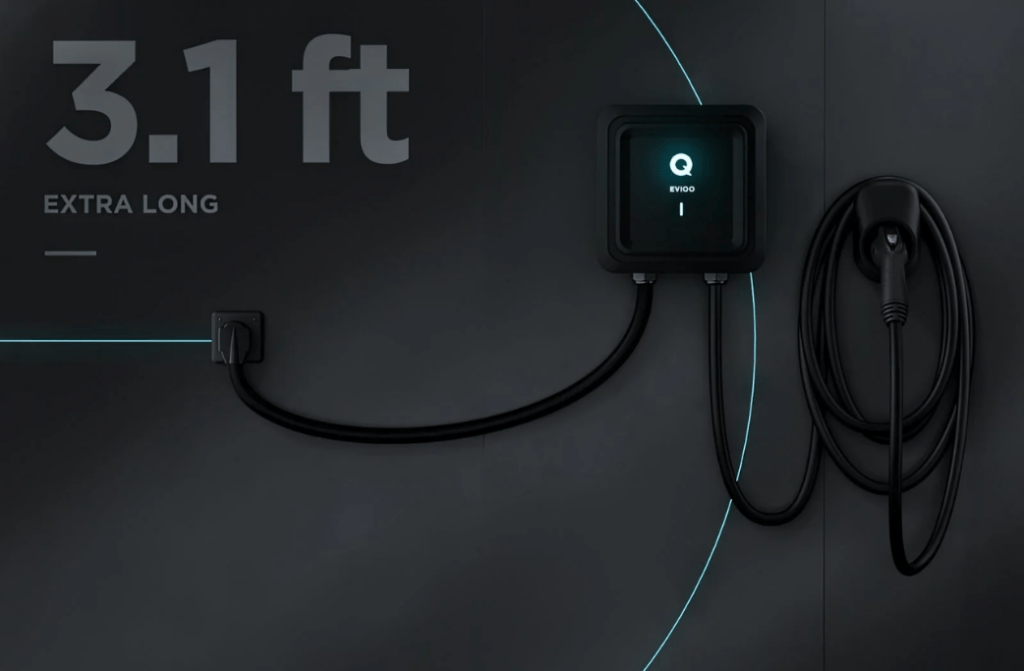
EVIQO Smart EV Charging Cable
- Power: 32 amps (7.7 kW)
- Cable Length: 25 feet
- Weatherproof Rating: IP65 (water and dust resistant)
- Adjustable Amps: No (Fixed at 32 amps)
- Compatibility: J1772
- Warranty: 2 years
- Portable: No
The EVIQO Smart EV Charging Cable is a compact and intelligent Level 2 EV charger designed to offer fast charging with advanced smart features. With an adjustable amperage of up to 32 amps, this charger ensures quicker energy transfer than standard Level 1 chargers, making it ideal for at-home use. It’s compatible with most electric vehicles and comes with a durable build to withstand daily wear.
One of the standout features of the EVIQO Smart EV Charger is its Wi-Fi connectivity, which allows you to monitor, schedule, and control charging sessions through the companion app. This gives users the ability to track energy usage and optimize their EV’s charging cycle for cost efficiency, especially if paired with time-of-use energy rates.
- You’re looking for a Level 2 charger that provides fast charging up to 32 amps for reduced charging times.
- You want a charger with smart connectivity features, including the ability to schedule charging and monitor energy usage through an app.
- You’re seeking a compact and easy-to-install EV charger that can handle various weather conditions.
- You want the flexibility of adjusting the amperage to fit your vehicle’s charging requirements or household electrical capacity.
- Wi-Fi connectivity and app integration are important for managing your charging remotely.
- Water-resistant with high-quality materials, IP65-rated for dust and water resistance.
- Anti-slip grip and reinforced plug for added durability.
- Built-in LCD display and smart features for energy tracking.
- Reliable for both home and light commercial use.
- Higher cost due to added smart features.
- Slightly bulkier than non-smart models.
best dual-port EV charging cable

United Chargers Grizzl-E Duo
- Power: 40 amps (10 kW)
- Cable Length: 24 feet
- Weatherproof Rating: NEMA 4 (Outdoor rated)
- Adjustable Amps: Yes (Up to 40 amps)
- Compatibility: J1772
- Warranty: 3 years
- Portable: No
The United Chargers Grizzl-E Duo is a robust and reliable dual-port Level 2 EV charger, offering simultaneous charging for two electric vehicles. With up to 40 amps of charging power per port, the Grizzl-E Duo is designed to deliver efficient charging to both vehicles at once, making it an ideal choice for households with multiple EVs or businesses with fleets.
Built with a rugged, weather-resistant casing, the Grizzl-E Duo is designed to handle harsh climates, ensuring durability in outdoor installations. The charger offers adjustable amperage settings, allowing users to tailor the charging speed to their home’s electrical system. Additionally, it features safety features such as overcurrent, overvoltage, and overheating protection for secure and dependable charging.
- You have multiple EVs or need to charge two vehicles at once, with dual charging ports offering up to 40 amps per port.
- You’re looking for a durable, weatherproof charger designed to withstand extreme weather conditions, making it suitable for outdoor installations.
- You want the flexibility of adjustable amperage settings to customize charging speed based on your home’s electrical capacity.
- You need a reliable and simple solution without extra smart features, focusing on power and safety.
- Safety and protection features like overcurrent and overvoltage protection are important for secure charging.
- Heavy-duty aluminum casing with IP67 rating, suitable for extreme conditions.
- Designed for dual-vehicle charging, with robust materials for continuous use.
- Extremely rugged for tough environments.
- Dual charging capability for households with multiple EVs.
- Heavier and less portable than single chargers.
- Higher cost due to dual charging feature.
Most portable Level 2 EV charger

Mustart Level 2 Portable EV Charger
- Power: 40 amps (10 kW)
- Cable Length: 25 feet
- Weatherproof Rating: IP65 (Water Resistant)
- Adjustable Amps: Yes (Up to 40 amps)
- Compatibility: J1772
- Warranty: 2 years
- Portable: Yes
The Mustart Level 2 Portable EV Charger is a compact and reliable portable charger designed for fast and efficient charging at home or on the go. Offering up to 40 amps of power, it delivers significantly faster charging than standard Level 1 chargers, allowing most electric vehicles to fully charge in just a few hours.
Its portable design makes it perfect for EV drivers who need flexibility, whether you’re charging at home, work, or at a destination with available outlets. It’s built with a sturdy, durable construction, including protection against overheating, overvoltage, and overcurrent, ensuring safe and dependable charging. The Mustart charger is compatible with all major EVs and includes a high-quality charging cable and plug, making it a reliable option for those looking for convenience without sacrificing power.
- You need a portable charging solution that can be used in various locations—at home, work, or while traveling.
- You’re looking for a fast charging option, as the 40-amp output allows for quicker charging times compared to Level 1 chargers.
- You value durability and safety features, with built-in protections such as overvoltage and overcurrent safeguards.
- You want a versatile charger that’s compatible with most electric vehicles, making it suitable for different models.
- You don’t need Wi-Fi or app-controlled smart features, as this charger focuses on providing straightforward, high-powered charging.
- High-grade plastic casing with impact resistance.
- IP65-rated, suitable for indoor/outdoor use but best kept sheltered.
- Lightweight, highly portable.
- Affordable with solid durability for casual use.
- Less robust than some all-weather models.
- No app or smart features.
Most versatile Level 1 and Level 2 EV charger
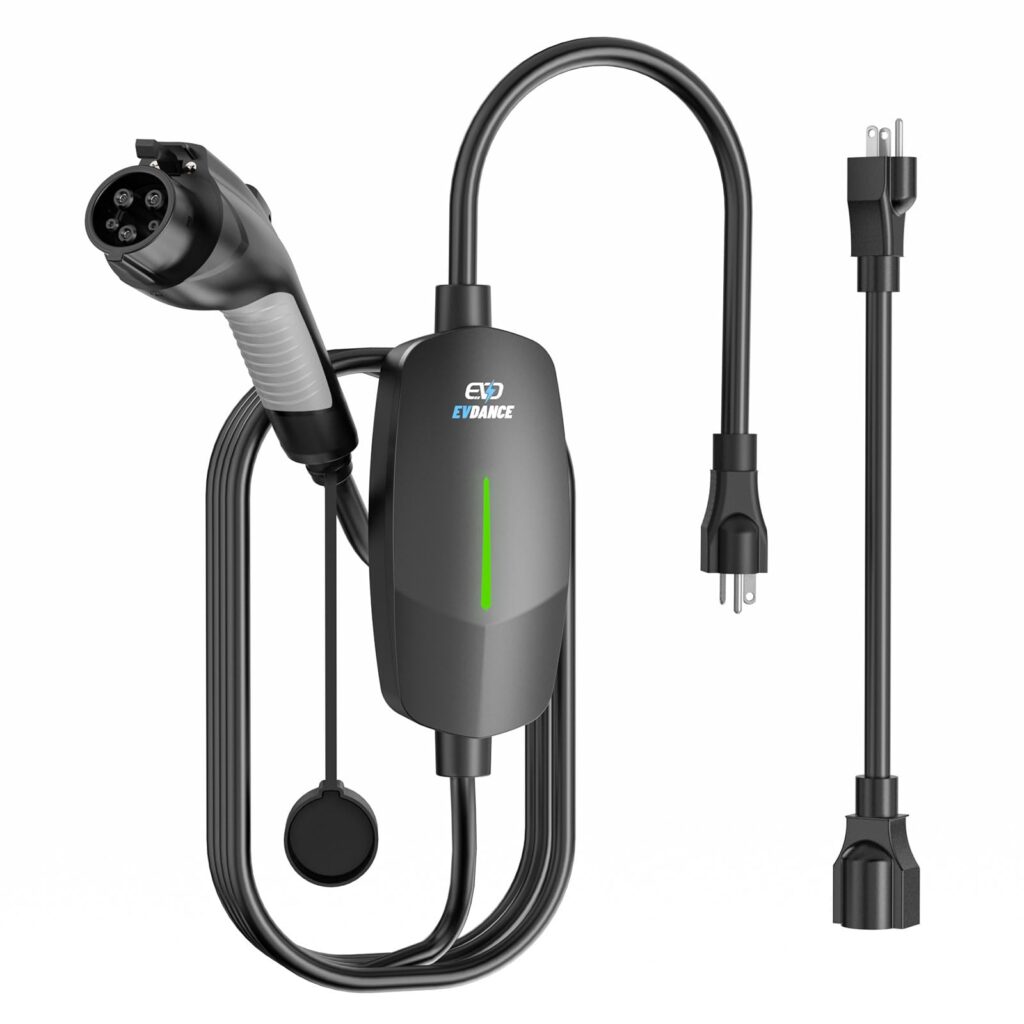
EV Dance Level 1 + 2 EV Charger
- Power: 16 amps (Level 1) / 32 amps (Level 2)
- Cable Length: 25 feet
- Weatherproof Rating: IP54 (Splashing Water)
- Adjustable Amps: No (Fixed on both)
- Compatibility: J1772
- Warranty: 2 years
- Portable: Yes
The EV Dance Level 1 + 2 EV Charger is a versatile charging solution that supports both Level 1 and Level 2 charging, making it ideal for EV owners who need flexibility in different charging environments. Whether you’re at home with access to a standard 120V outlet or have access to a 240V outlet for faster charging, this charger adapts to your needs.
With adjustable amperage settings, it can charge at varying power levels depending on the type of outlet you have. The charger’s compact and portable design makes it easy to carry for charging on the go, providing flexibility for drivers who may not have access to a dedicated charging station. Its rugged construction ensures durability, and the charger includes built-in safety features such as protection against overcurrent, overvoltage, and overheating, ensuring reliable and safe operation.
- You need a dual-purpose charger that works with both standard 120V and 240V outlets, offering the flexibility to charge at home or in different locations.
- You want a portable, compact design that allows for easy transportation and charging while traveling.
- You’re looking for a charger with adjustable amperage settings, giving you control over charging speed depending on the outlet and situation.
- You need a durable charger with safety features like overcurrent, overvoltage, and overheating protection for reliable use.
- You don’t require smart features like app control or scheduling and prefer a straightforward, adaptable charging solution.
- Reinforced casing with IP54 rating; moderate water and dust resistance.
- Flexible design for both Level 1 and Level 2 charging.
- Versatile with both Level 1 and Level 2 compatibility.
- Compact and highly portable for travel.
- Not as rugged for continuous outdoor use.
- Limited in smart features.
Compare EV Charging Cables For Home In 2024
| Product | Charging Power | Cable Length | Connectivity | Smart Features | Portability | Compatibility |
|---|---|---|---|---|---|---|
| Grizzl-E Mini Portable EV Charging Cable | 32 Amp | 16 ft | Hardwired | No | Yes | All EVs |
| JuiceBox 40 Smart EV Charging Cable | 40 Amp | 25 ft | Wi-Fi | Yes | No | All EVs |
| Lectron EV Charging Cable (16 Amp) | 16 Amp | 16 ft | Hardwired | No | Yes | All EVs |
| Tesla Wall Connector | 48 Amp | 24 ft | Wi-Fi | Yes | No | Tesla only |
| Emporia Smart Home EV Charging Cable | 32 Amp | 24 ft | Wi-Fi | Yes | No | All EVs |
| ChargePoint Home Flex | 50 Amp | 23 ft | Wi-Fi | Yes | No | All EVs |
| EVIQO Smart EV Charging Cable | 32 Amp | 20 ft | Wi-Fi | Yes | No | All EVs |
| United Chargers Grizzl-E Duo | 40 Amp | 24 ft | Hardwired | No | No | All EVs |
| Mustart Level 2 Portable EV Charger | 32 Amp | 25 ft | Hardwired | No | Yes | All EVs |
| EV Dance Level 1 + 2 EV Charger | 16 Amp (Level 1), 32 Amp (Level 2) | 20 ft | Hardwired | No | Yes | All EVs |
Best Overall

Grizzl-E Mini Portable EV Charging Cable
- Power: Up to 32 amps (7.4 kW)
- Cable Length: 16 feet
- Weatherproof Rating: NEMA 4 (outdoor rated)
- Adjustable Amps: Yes (16, 24, 32, 40)
- Compatibility: J1772
- Warranty: 3 years
- Portable: Yes
Runner Up

JuiceBox 40 Smart EV Charging Cable
- Power: Up to 40 amps (10 kW)
- Cable Length: 25 feet
- Weatherproof Rating: NEMA 4X (Indoor and outdoor)
- Adjustable Amps: Yes (up to 40 amps)
- Compatibility: J1772
- Warranty: 3 years
- Portable: No
Best Budget

Lectron EV Charging Cable (16 Amp)
- Power: 16 amps (3.5 kW)
- Cable Length: 16 feet
- Weatherproof Rating: IP66 (water-resistant)
- Adjustable Amps: No (Fixed at 16 amps)
- Compatibility: J1772
- Warranty: 1 year
- Portable: Yes
Best EV Charging Cables For Home 2024 Buyers Guide
If you’re looking for a heavy-duty, weatherproof charging cable that offers reliability, the Grizzl-E Classic is a great option. It delivers up to 40 amps of power with a generous 24-foot cable, making it perfect for outdoor setups. Built to withstand harsh conditions, this cable features a rugged design that ensures durability for years to come. It also allows for adjustable amps and is universally compatible, giving you flexibility in your charging needs.
For those who love technology, the JuiceBox 40 is packed with smart features. With 40 amps of power and a 25-foot cable, it integrates seamlessly with smart home devices. You can control charging schedules, monitor energy usage, and set reminders right from your phone. It’s perfect for anyone looking to optimize their charging while enjoying a bit of tech-savvy convenience.
If you’re on a budget but still want a reliable charging cable, the Lectron EV Charging Cable is a fantastic choice. Offering 32 amps of power and a 21-foot cable, it’s designed for both indoor and outdoor use with an IP66 water resistance rating. Its portability means you can take it wherever you go, ensuring that you’re never without power when you need it most.
For Tesla owners, the Tesla Wall Connector is the ultimate home charging solution. It provides up to 48 amps of power, ensuring your Tesla charges quickly and efficiently. With a sleek design and full compatibility with Tesla vehicles, it even features built-in adjustments for amperage and remote monitoring through the Tesla app, making it an ideal addition for any Tesla owner.
The Emporia Smart Home EV Charging Cable is perfect for those looking to integrate solar or energy-saving home systems. It delivers up to 48 amps of power and offers advanced energy tracking features. With a weatherproof NEMA 4 rating and a 24-foot cable, it’s versatile for both indoor and outdoor setups. Plus, it connects with smart home devices, allowing you to keep tabs on your energy consumption.
If flexibility is what you’re after, the ChargePoint Home Flex delivers. It offers up to 50 amps of power and a 23-foot cable, making it one of the most versatile chargers available. You can easily charge a variety of vehicles, from compact cars to electric SUVs, and control your charging sessions via the ChargePoint app for added convenience.
The EVIQO Smart EV Charging Cable stands out for its simplicity and effectiveness. With up to 32 amps of power and a 25-foot cable, it’s both reliable and affordable. Its IP65 rating makes it suitable for outdoor use, and it’s an excellent choice for those who prefer a straightforward charging solution without unnecessary features.
For households with multiple electric vehicles, the United Chargers Grizzl-E Duo is a game-changer. This charger features dual ports, allowing you to charge two EVs at once, each with up to 40 amps of power. Its durable, weatherproof design ensures efficiency, and the 24-foot cable offers the flexibility to position it where you need it most.
The Mustart Level 2 Portable EV Charger is an excellent option for those who value portability. With up to 40 amps of power and a 25-foot cable, this charger is designed to be easily transportable while still delivering solid performance. Its IP65 water resistance rating makes it suitable for outdoor charging, so you can take it wherever you need to go.
The EV Dance Level 1 + 2 EV Charger offers unmatched versatility, providing both Level 1 (16 amps) and Level 2 (32 amps) charging modes. Its compact design and 25-foot cable make it convenient for use at home or on the go. With an IP54 splash resistance rating and compatibility with all EVs, it’s perfect for drivers looking for flexible charging options.
Waterproof Ratings For EV Charging Cables
When it comes to selecting EV charging cables, one crucial aspect to consider is the waterproof rating, as it determines the cable’s ability to withstand exposure to water and moisture. Here’s a breakdown of common waterproof ratings and their implications for EV charging cables:
NEMA Ratings:
NEMA 1:
- Usage: Indoor only
- Water Resistance: None
- Recommendation: Not suitable for outdoor use; primarily for dry indoor environments.
NEMA 3:
- Usage: Indoor and outdoor
- Water Resistance: Resistant to rain and snow
- Recommendation: A good option for charging stations that may be exposed to the elements but not direct water splashes.
NEMA 4:
- Usage: Indoor and outdoor
- Water Resistance: Protects against splashing water, rain, snow, and ice
- Recommendation: Excellent for outdoor environments, ensuring the cable remains functional in various weather conditions.
NEMA 6:
- Usage: Indoor and outdoor in wet conditions
- Water Resistance: Protects against more severe weather conditions, including direct water exposure
- Recommendation: Ideal for extreme environments where cables might be exposed to heavy rain or splashing.
Why Waterproof Ratings Matter
Choosing a charging cable with a suitable waterproof rating is essential, especially for those who plan to charge their EVs outdoors. A higher NEMA rating not only protects the cable from moisture but also enhances its durability and reliability over time. Investing in a quality waterproof cable ensures that you can charge your vehicle safely and efficiently, regardless of the weather conditions.
EV Charging Cables FAQ
What is an EV charging cable?
An EV charging cable is a specialized cable used to connect electric vehicles (EVs) to a power source, allowing them to recharge their batteries. These cables come in various types and power ratings to suit different charging needs, from home installations to public charging stations.
What are the different types of EV charging cables?
As electric vehicles (EVs) become more popular in the U.S., understanding the various types of EV charging cables is essential for efficient and safe charging. EV charging cables come in different styles and connectors, each designed for specific charging standards and use cases
- Type 1 (SAE J1772): Used for Level 1 and Level 2 charging in North America.
- Type 2 (Mennekes): Common in Europe, used with some Tesla vehicles.
- CCS: Supports high-speed DC charging and is increasingly adopted by various manufacturers.
- CHAdeMO: A DC fast charging standard primarily for Japanese EVs.
- Tesla Connector: A proprietary connector designed for Tesla vehicles.
1. Types of EV Charging Connectors
a. Type 1 (SAE J1772)
- Description: This is a single-phase connector commonly used for charging in North America.
- Compatibility: Primarily compatible with older EV models from manufacturers like Nissan (Leaf) and Chevrolet (Volt).
- Charging Speed: Supports Level 1 and Level 2 charging, providing up to 40 amps (9.6 kW) at Level 2, which can charge most EVs in about 4 to 8 hours.
b. Type 2 (Mennekes)
- Description: This three-phase connector is widely used in Europe but is becoming more common in the U.S. for certain models.
- Compatibility: Used by some EVs like the Tesla Model S and Model X with an adapter.
- Charging Speed: Can support up to 63 amps (22 kW) on three-phase supply, significantly reducing charging time.
c. CCS (Combined Charging System)
- Description: This connector combines AC and DC charging capabilities and is increasingly used in newer EV models.
- Compatibility: Compatible with many popular EVs, including the Ford Mustang Mach-E, BMW i3, and Volkswagen ID.4.
- Charging Speed: CCS can provide high-speed DC charging up to 350 kW, allowing for rapid charging in 20 to 30 minutes, making it suitable for long-distance travel.
d. CHAdeMO
- Description: This is a DC fast charging standard primarily used by Japanese manufacturers.
- Compatibility: Commonly found in vehicles like the Nissan Leaf and Mitsubishi Outlander PHEV.
- Charging Speed: Supports fast charging up to 62.5 kW, enabling an 80% charge in about 30 minutes.
e. Tesla Connector
- Description: Tesla uses a proprietary connector for its vehicles, enabling both Level 1 and Level 2 charging.
- Compatibility: Designed specifically for Tesla vehicles, but with adapters available for Type 1 and CCS connectors.
- Charging Speed: Tesla Superchargers can deliver up to 250 kW, allowing for rapid charging in approximately 15-30 minutes.
2. Types of EV Charging Cables
a. Level 1 Charging Cables
- Description: These cables plug into a standard household outlet (120V) and provide a slow charge.
- Compatibility: Generally compatible with all EVs with a Type 1 connector.
- Charging Speed: Typically offers about 4-5 miles of range per hour of charging, making them suitable for overnight charging.
b. Level 2 Charging Cables
- Description: These cables require a 240V outlet and are commonly found in public charging stations and home EV chargers.
- Compatibility: Typically uses a Type 1 connector but can be adapted for other connector types.
- Charging Speed: Provides about 10-60 miles of range per hour, depending on the vehicle and charger capacity.
c. DC Fast Charging Cables
- Description: These cables connect to DC fast chargers, providing rapid charging.
- Compatibility: CCS and CHAdeMO connectors are common for DC fast charging.
- Charging Speed: Can add 60-100 miles of range in 20-30 minutes, depending on the vehicle and charger.
3. Choosing the Right Charging Cable
When selecting an EV charging cable, consider the following factors:
- Vehicle Compatibility: Ensure the cable matches the connector type of your vehicle (e.g., Type 1, CCS).
- Charging Speed Needs: Determine how quickly you need to charge your vehicle. Level 1 cables are ideal for overnight home charging, while Level 2 and DC fast charging cables are better for quicker charges.
- Portability: If you plan to charge on the go, consider a lightweight, portable Level 2 charging cable that can be easily stored in your vehicle.
How do I choose the right EV charging cable?
When selecting the right EV charging cable, consider the following factors:
- Power Rating: Look for a cable with a power rating that matches your vehicle’s charging capacity. Most home chargers range from 16 to 50 amps.
- Cable Length: Ensure the cable is long enough to reach your vehicle comfortably from your charging point.
- Portability: If you plan to charge at various locations, consider a portable charger.
- Compatibility: Verify that the cable is compatible with your EV make and model.
- Weatherproof Rating: If you’ll be using the cable outdoors, choose one with a suitable weatherproof rating.
What is the importance of weatherproofing in EV charging cables?
Weatherproofing is crucial for ensuring the durability and safety of your charging cable, especially if it will be used outdoors. A weatherproof rating indicates how well the cable can withstand exposure to elements such as rain, snow, and extreme temperatures.
What does the NEMA rating mean for EV charging cables?
NEMA (National Electrical Manufacturers Association) ratings classify electrical devices based on their suitability for different environments. For EV charging cables:
- NEMA 1: Indoor use only, not weatherproof.
- NEMA 3: Indoor and outdoor use, resistant to rain and snow.
- NEMA 4: Suitable for indoor and outdoor use, protecting against splashing water, rain, snow, and even ice.
- NEMA 6: Designed for indoor and outdoor use in wet conditions, often used in more demanding applications.
Can I use a Level 1 charger for my EV?
Yes, you can use a Level 1 charger to recharge your EV, especially if you don’t drive long distances daily. However, charging will be significantly slower than using a Level 2 charger, which is more efficient for regular use.
How long does it take to charge an EV using different cables?
How Long Does It Take to Charge an EV Using Different Cables?
Charging time for an electric vehicle (EV) depends largely on the type of cable and charger being used, as well as the vehicle’s battery capacity. Each type of EV charging cable supports different speeds, which means charging times can vary greatly. Here’s an in-depth look at the different charging cables and how long they take to charge an EV:
1. Level 1 Charging (120V)
- Cable Type: Standard household outlet (SAE J1772 connector)
- Charging Speed: 1.4 kW (120 volts at 12 amps)
- Typical Charging Time:
- Full Charge: 30-50 hours for EVs with larger batteries (e.g., Tesla Model S)
- Range Per Hour: Adds about 3-5 miles of range per hour of charging
- When to Use: Level 1 charging is typically used at home overnight or for slow charging needs. It’s ideal for plug-in hybrids (PHEVs) or when time is not an issue.
2. Level 2 Charging (240V)
- Cable Type: Dedicated EV charging cable (SAE J1772 or Type 2 connector)
- Charging Speed: 3.7 kW to 22 kW, depending on the charger and vehicle
- Typical Charging Time:
- Full Charge: 4-10 hours for a full charge on most EVs
- Range Per Hour: Adds about 20-60 miles of range per hour, depending on the vehicle and charger capacity
- When to Use: Level 2 charging is the most common method for home installations and public charging stations. It’s much faster than Level 1, making it ideal for overnight charging or quick top-ups.
Example of Charging Times:
- Nissan Leaf (40 kWh battery): ~8 hours for a full charge with a 6.6 kW Level 2 charger.
- Tesla Model 3 (75 kWh battery): ~9 hours for a full charge with an 11.5 kW Level 2 charger.
3. DC Fast Charging (Level 3)
- Cable Type: CCS or CHAdeMO connectors
- Charging Speed: 50 kW to 350 kW (DC current)
- Typical Charging Time:
- Full Charge: Typically not used for full charging, but can charge 80% in 20-40 minutes
- Range Per Hour: Adds about 180-300+ miles in 30 minutes, depending on the vehicle and charger
- When to Use: DC fast charging is available at public stations along highways and in some urban areas. It’s ideal for long-distance travel or when you need a rapid charge in a short time. However, using DC fast charging too frequently can cause battery degradation over time.
Example of Charging Times:
- Tesla Model Y (75 kWh battery): Adds about 200 miles of range in 15-20 minutes with a Tesla Supercharger (up to 250 kW).
- Kia EV6: Charges from 10% to 80% in about 18 minutes with a 350 kW charger.
4. Tesla Supercharger
- Cable Type: Proprietary Tesla connector (DC fast charging)
- Charging Speed: Up to 250 kW
- Typical Charging Time:
- Full Charge: Can charge 80% in about 20-30 minutes
- Range Per Hour: Adds up to 200-300 miles of range in 15-30 minutes
- When to Use: Tesla Superchargers are positioned along major routes, providing extremely fast charging for long-distance trips. Tesla’s Supercharger network is exclusive to Tesla vehicles, but it can be adapted for other chargers with the right adapter.
5. Home Charging vs Public Charging
Home Charging (Level 1 or Level 2): Most EV owners will do the bulk of their charging at home, especially overnight when time is not an issue. Level 1 chargers are slow but reliable, while Level 2 chargers offer much faster charging for daily use.
Public Charging (Level 2 or DC Fast Charging): Public charging stations often provide Level 2 charging, which is good for topping up while you shop, work, or dine. DC fast charging stations are generally used for quick stops on long road trips or when you need an immediate boost.
6. Factors Affecting Charging Time
Several factors can influence how long it takes to charge your EV:
- Battery Size: Larger batteries take longer to charge, but they also hold more energy and provide longer ranges.
- Charging Speed of the Vehicle: Each EV has a maximum charging rate that it can handle. For example, even if you plug into a 350 kW fast charger, your vehicle may only accept 150 kW.
- State of Charge: Charging from 0% to 100% takes longer than charging from 20% to 80%. Most fast chargers slow down after reaching 80% to prevent battery overheating.
- Temperature: Cold weather can slow down charging, especially with Level 1 and Level 2 chargers.
Is it safe to use an extension cord with my EV charging cable?
Using an extension cord is generally not recommended for EV charging, as it can lead to overheating, reduced charging efficiency, and safety hazards. If you need more length, consider investing in a longer charging cable instead.
How do I maintain my EV charging cable?
To ensure the longevity and efficiency of your EV charging cable:
- Regularly inspect the cable for damage or wear.
- Store the cable properly to prevent tangles and kinks.
- Keep the connectors clean and free of debris.
- Avoid exposing the cable to extreme temperatures or harsh conditions when not in use.
Can I leave my EV charging cable plugged in all the time?
While many EVs have systems to prevent overcharging, it’s generally a good practice to unplug the cable when not in use, especially in outdoor settings, to avoid potential wear and damage from environmental elements.
Which cable is best for EV charging?
When it comes to choosing the best cable for EV charging, it often depends on your specific needs and the type of electric vehicle (EV) you own. The Grizzl-E Mini Charging Cable is a popular option due to its 32-amp capacity and 16-foot length, making it versatile and suitable for most EVs. It’s also NEMA 4 weatherproof, allowing for outdoor use in various weather conditions. However, other reliable options include the ChargePoint Home Flex and JuiceBox 40, which offer smart features and customizable amperage settings. Ultimately, the best cable for you will combine compatibility with your vehicle, charging speed, and convenience.
How many amps do I need for a home EV charger?
The amp rating you need for a home EV charger largely depends on your vehicle and how quickly you want to charge. For most households, a 30 to 40-amp charger is sufficient. A 30-amp charger will add about 25 miles of range per hour, while a 40-amp charger can add about 32 miles per hour. If you have a larger EV battery or if you often charge multiple vehicles, opting for a higher amp charger may be beneficial. It’s always best to consult your vehicle’s manual for recommended charging specifications.
What size cable is recommended for an EV charger?
The recommended cable size for an EV charger usually depends on the amperage of the charger. Generally, a 12 AWG (American Wire Gauge) cable is suitable for 20-30 amp chargers, while a 10 AWG cable is recommended for 40 amp chargers. Using the correct wire size is crucial for safety and efficiency, as it helps to prevent overheating and ensures optimal charging speeds. Always check local electrical codes and standards to ensure compliance.
How do I choose an EV cable?
Choosing the right EV cable involves considering a few key factors:
- Compatibility: Ensure the cable is compatible with your vehicle’s charging port (e.g., J1772 for most non-Tesla vehicles).
- Amperage: Consider the amperage you need based on your vehicle and charging speed preferences. Look for cables that allow for adjustable amperage settings.
- Length: The cable should be long enough to reach from your charging station to your vehicle. A 16-foot cable is often a good standard length.
- Weatherproofing: If you plan to charge outdoors, look for cables with a high weatherproof rating, like NEMA 4.
- Portability: If you travel frequently or plan to charge at different locations, a portable charging cable can be a convenient option.
How long can a Level 2 charger cable be?
Level 2 charger cables can vary in length, but they typically range from 10 to 25 feet. However, it’s generally recommended to keep the cable length as short as possible to minimize voltage drop, which can affect charging efficiency. A 16-foot cable is a popular choice, striking a balance between reach and efficiency. If you plan to install a charging station in your garage or near your parking area, measure the distance to ensure you choose the right length.
What is the difference between a Type 1 and Type 2 EV charging cable?
The primary difference between Type 1 and Type 2 EV charging cables lies in their connectors and compatibility:
- Type 1 (J1772): This connector is commonly used in North America and is compatible with most non-Tesla EVs. It has five pins and is designed for single-phase charging.
- Type 2 (Mennekes): This connector is prevalent in Europe and allows for both single-phase and three-phase charging, offering faster charging speeds. It has seven pins and is becoming more common in newer EV models worldwide. When choosing a cable, ensure it matches the connector type required by your EV.
Does it matter what charging cable I use?
The charging cable you use for your electric vehicle (EV) is crucial for ensuring compatibility, safety, and efficiency during charging. Various factors come into play when selecting the right cable, as different EV models, charging stations, and cable types can significantly affect your charging experience. Below, we will explore the different charging cable types, their compatibility with vehicles, and the implications of using the wrong cable.
1. Types of EV Charging Cables
Level 1 Charging Cables
- Connector Type: Generally uses a standard household outlet with a NEMA 5-15 plug (Type A).
- Use: Primarily for charging at home using a regular outlet.
- Charging Speed: Provides approximately 1.4 kW of power, which is quite slow (adds about 3-5 miles of range per hour).
Considerations:
- Level 1 cables are universally compatible with all EVs that support standard household charging, making them a good backup option.
Level 2 Charging Cables
- Connector Type: Typically uses the SAE J1772 connector (Type 1) for most EVs, while some vehicles may use Type 2 connectors (common in Europe).
- Use: Most common type for home charging stations and public charging locations.
- Charging Speed: Provides between 3.7 kW to 22 kW, significantly faster than Level 1 (adds about 20-60 miles of range per hour).
Considerations:
- Most EVs come with a Level 2 charging cable; however, if you purchase a separate one, ensure it’s compatible with your specific vehicle model.
DC Fast Charging Cables
- Connector Types: Includes CCS (Combined Charging System), CHAdeMO, and Tesla’s proprietary connectors.
- Use: Designed for rapid charging at public stations.
- Charging Speed: Can deliver between 50 kW and 350 kW, allowing an EV to charge up to 80% in as little as 20-40 minutes.
Considerations:
- Not all EVs can use DC fast charging; therefore, ensure that your vehicle supports the specific fast-charging connector you plan to use.
2. Vehicle Compatibility
Manufacturer-Specific Cables: Some manufacturers, like Tesla, have proprietary connectors for fast charging. While adapters are available for using non-manufacturer-specific chargers, relying on the original cable is generally recommended for optimal performance.
Aftermarket Options: Many aftermarket charging cables are available, but their compatibility and quality can vary. Always verify that the cable meets the required specifications for your EV to ensure safety and efficiency.
3. Safety Concerns
Overheating: Using an incompatible cable can lead to overheating and potential damage to both the cable and the vehicle’s charging port. It can also pose a fire risk.
Electrical Ratings: Ensure that the cable’s electrical ratings (amps and volts) match your EV’s requirements. Using a lower-rated cable may result in overheating and failure.
Quality and Certifications: Opt for cables that are certified by relevant safety standards (such as UL or CE) to ensure quality and reliability.
4. Charging Efficiency
Voltage Drop: Using a cable that is too long or not rated for the correct amperage can result in voltage drops, leading to longer charging times and inefficiencies.
Plug Fit: A loose connection can create resistance, generating heat and slowing the charging process. Ensure the connectors fit securely in both the charging port and the outlet.
5. Cost and Availability
Price Variation: High-quality cables may come at a higher price but investing in a reliable cable can save you from potential issues down the line.
Availability: Depending on where you live, you might find different types of cables more readily available. Having the correct type for your vehicle can prevent charging delays.
Is a hardwired EV charger better than a plug-in?
Whether a hardwired EV charger is better than a plug-in charger depends on your specific needs:
- Hardwired EV Chargers: These are permanently installed and often provide higher amperage for faster charging. They are typically more secure and less likely to be stolen or damaged. However, installation costs can be higher.
- Plug-In Chargers: These are more flexible and portable, allowing you to unplug and move the charger if needed. They can be easier to install and less expensive upfront, but may have lower charging speeds compared to hardwired options.
Final Thoughts
When it comes to choosing the right EV charging cable, the options are as diverse as the electric vehicles themselves. Whether you’re leaning towards a portable option for flexibility or a hardwired solution for fast charging, understanding your specific needs is key. Features like weatherproof ratings, adjustable amperage settings, and cable lengths can significantly enhance your charging experience, ensuring you get the most out of your investment.
Selecting a quality EV charging cable isn’t just about convenience; it’s about making a commitment to a sustainable future. With the right cable in hand, you’ll not only ensure that your vehicle is charged and ready to go whenever you are, but you’ll also contribute to reducing emissions and promoting cleaner energy practices.
As the electric vehicle landscape continues to grow, taking the time to choose the right cable now will set you up for an effortless and efficient driving experience down the road. So, dive into the options we’ve discussed, assess what matters most to you, and find the perfect cable that meets your lifestyle. Happy charging, and enjoy the journey of electric driving!

Article By: Dale Ogden
Dale is a recognized expert in the automotive industry, known for his expertise in automotive asset management and consulting.
As the founder of Check Your Spec and former Forecast Manager at CAP HPI (equivalent to Kelley Blue Book in the USA) he made significant contributions to the development of forecasting strategies and depreciation models for internal combustion engines, hybrid, and electric commercial vehicles in the UK.
With over two decades of experience, Dale pioneered EV forecasting models that are now used by leading manufacturers.
His work has also produced residual values for over 10,000 new vehicles.

